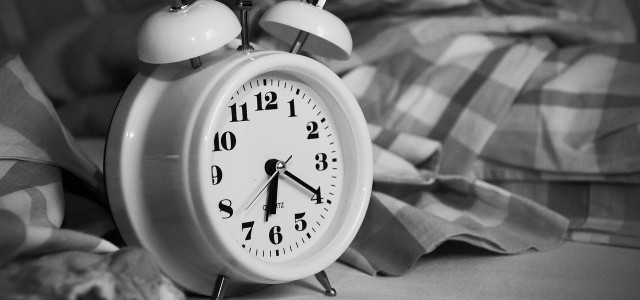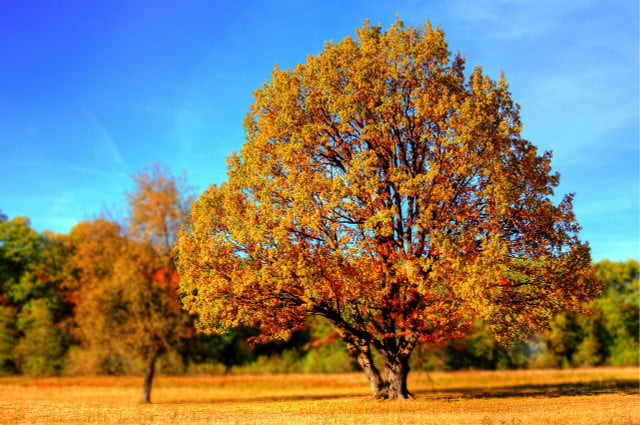
At the end of October the clocks change to winter time. You can find out here how you can deal with sleep disorders and concentration problems – and also how you can save energy in the winter.
Winter time 2024: Time change on Sunday the 27th from 3 a.m. to 2 a.m
The time change to winter time is always on the last Sunday in October. This year the time change will take place on October 27, 2024: The clocks will be set back to two o’clock (CET) on Sunday morning at three o’clock (CEST) – so you gain an hour.
In the future, you can use the following sentences to remember whether the clocks go forward or back in winter:
- In the fall you put the garden furniture BACK in the shed.
- You always set the clock “towards” summer – so BACK in autumn.
- In winter the temperatures go down, so the clock is turned BACK.
Tips for the time change in 2024: Cope better with winter time

(Photo: CC0 / Pixabay / giani)
On the last Sunday in October, due to the time change to winter time, the entire daily routine is postponed by an hour: theoretically you can sleep an hour longer. However, this can mess up your rhythm. Below we will tell you how you can better cope with the time change.
- Don’t oversleep the extra hour the next morning, but get up at least half an hour earlier. Then the time change will be easier for you.
- On the day the time changes to winter time, keep yourself busy with some exercise in the fresh air to prevent fatigue and sleep disorders. Going for a walk is also helpful.
- If you can’t fall asleep well in the evening: You can find some home remedies in our article “Tips for falling asleep”. Fresh herbal teas, for example, are helpful. Lemon balm tea and valerian calm you down and ensure a good night’s sleep.
- Also eat lots of fresh fruit and vegetables (we recommend seasonal, organic and regional products). This not only helps against digestive problems, but also against poor concentration and irritability.
- When it gets dark earlier in the winter, mood swings, also known as the “winter blues,” are more common. It’s best to surround yourself with people who bring you joy or treat yourself to something nice that you’ve always wanted to do in the extra hour on Sunday.
Symptoms: This is how winter affects the body
The time change to winter time is like a mini jet lag. Because the time change affects the biological clock. Especially if you get up and go to sleep at the same time every day, you may notice one or more of the following symptoms:
- sleep disorders,
-
Fatigue,
-
mood swings,
- lack of concentration,
- irritability,
-
loss of appetite,
-
Digestive problems.
In 2018, the EU Commission wanted to know how EU citizens felt about the time change and whether they wanted permanent summer or winter time. That’s why an online survey was started. The EU vote on the time change broke records. Afterwards, resistance to abolition grew and experts warned of the serious consequences of permanent summer time for health and mental health.
According to the European Parliament’s draft, all EU states should actually decide for themselves whether they want to keep summer or winter time permanently. However, the exact coordination has since proven to be quite complicated. Therefore, an imminent determination and thus an end to the time change cannot yet be foreseen after all this.
Does winter save energy?
The time change was introduced in 1980 to save energy. According to the Federal Environment Agency, less light is required in the evenings in summer, but more heating is required in the mornings in winter. The savings effect is therefore canceled out. This is also the argument of a spokeswoman for the Federal Association of the Energy and Water Industry, concluding: “Turning the dial to winter and summer time does not result in any noticeable energy savings.”
Some experts even argue that eternal summer time would save energy. Korbinian von Blanckenburg, professor at the Ostwestfalen-Lippe University of Technology, told the “Rheinische Post”: “The brighter it is in the evening, the less electricity is used.” He speaks of a potential saving of up to 700 million euros per year if it is sustained Summer time.
It’s not quite that simple. Christoph Mordziol from the Federal Environment Agency emphasizes that it is not just electricity consumption at home that needs to be taken into account. “With changes in leisure behavior, it can be assumed that activity outside the home leads to increases in energy consumption in the transport and leisure sectors.”
He emphasizes: “It seems obvious that the current change to summer time only leads to minor energy savings, which means that it only poorly fulfills its original purpose.” In addition, time changes within the EU would have different effects across regions. The respective situation, such as the climate, duration and intensity of solar radiation, economy or culture must always be taken into account in calculations. An example: If permanent summer time came, that would mean darkness in Spain in winter until shortly before 10 a.m. If everyone agreed on winter time, it would be light in Warsaw at 3 a.m. in summer. The time change twice a year dampens these extremes.
The EU Commission also speaks of insignificant savings from the time change. The Brussels authority points to different factors that would have an impact on energy consumption depending on the geographical location of a country. “Some studies suggest that summer time, combined with more outdoor leisure activities, could have positive effects,” it also says. But there are also research results that suggest that health effects such as biorhythms could be more serious than previously thought.
There is currently no promising initiative to actually abolish the time change. The presidency of the EU countries – the Czech Republic is currently in charge – has not put the issue on the agenda. The EU Commission has made a proposal as to how the change could be abolished, but the states of the European Union cannot agree. The project has been on hold in Brussels for a long time.
If you really want to save energy, the following guides will help you:
- Heating correctly: These 15 tips save money and protect the environment
- 15 tips for saving energy in the bathroom: How to reduce electricity and water consumption
- Pressure cooker cooking times: How to cook in an energy-saving way
- Save gas: This is how you use less
- Saving hot water: 5 tips that you can easily implement
- Oven symbols: use them correctly and save energy
- Saving energy with the short wash program: Why this is a mistake
Read more on Techzle\.com:
- Does Daylight Saving Time Really Save Energy?
- Heating guide: venting and other questions and answers
- Smoothie Recipes: 3 Healthy Winter Smoothies That Will Keep You Warm
With material from dpa
** marked with ** or orange underlined Links to sources of supply are partly partner links: If you buy here, you are actively supporting Techzle\.com, because we then receive a small part of the sales proceeds. More info.